Kisses Like Bombs Vs Places of No Memories
Rhonda experiences the bliss of unfamiliar landscapes reminding her of nothing and no one.
I was recently lucky enough to spend a week floating around the Bay of Kotor and northern Montenegrin coastline aboard a gorgeous wooden gulet, courtesy of the lovely Alexandra and Dejan of DM Yachting. This region is a place of ethereal, otherworldly beauty, studded by islands topped each by a convent, a domed church, or perhaps a luxe hotel in a former fort turned concentration camp. Or sometimes just bare and unpeopled – free of associations.
It’s a place of achingly charming cobbled Old Towns in places such as Kotor and Budva, of old Spanish fortresses perched high to offer vast vistas of shimmering Adriatic waters and misty mountains, as in Herceg Novi, and of ruined Venetian palazzi in enigmatic Perast. I fell in love with it and with life aboard the boat: diving off the gangplank into the cool green depths, kayaking to some of the islands, sleeping under the stars…
But what I soon came to realise was that the sense of peace and restfulness the week imbued me with had another layer. It lay quite simply in the fact that I hadn’t been to Montenegro before and so I had no memories tying me down to previous times and people, as I do in so many places.
Flying back home into Manchester airport, as I do pretty much once a month, I stared down at the boutique hotel where I spent a couple of nights a few months before, with a man I’d met on a plane home from India. It was right on the flightpath. He and I would lie sleepless at 5am and listen to the planes float in over our heads and laugh about how we had met up in the clouds. It seemed fated, not least because I had just been on a retreat in Kerala (yes, I was well primed and in fact a little overdue for my cringey Eat Pray Love moment).
The relationship self-combusted within weeks; we were two very different people who wanted two very different things, but we’d fought that because we really liked each other and wanted it to somehow work. I particularly, as a storyteller, wanted our meeting to make some kind of sense. We were both stuck in the clouds.
After we split, for weeks I watched planes from my bedroom window, wheeling in over the Peak District and then making their final descent. I watched planes and I thought about him and me and the chances against us having been seated next to each other. I thought of us chatting on our flight, walking through the airport together, hugging goodbye beside the baggage claim. Him sending me messages from the car park as he waited for his lift home.
And also, for weeks, flying into Manchester myself, on that final descent. Moments before landing I’d look down, in spite of myself and my aching heart, at the hotel where we’d lain wrapped in each other, at the gardens where we’d walked, the café where we had breakfast. Remembering him telling me afterwards how he’d nearly cried when I linked my arm through his.
Then getting off the train home from the airport, walking up the road where he’d once driven me in his big flash car after we’d been out for lunch, telling me to sell my house and get a divorce – neither of us knowing that the next day would be the very last time we would see each other, because the differences and problems had become blinding and untenable.
Perhaps one day I’ll be able to walk up that road, trudging past Tesco, without thinking about that. Perhaps one day I’ll be able to laugh, or at least smile, even if ruefully, rather than wince.
Perhaps by writing about it now, I will let go of the sadness.
That’s (partly) why I loved Montenegro: there was nobody and nothing to remember. It was a blank slate. Next time I go back, it won’t be: I’ll remember my fellow gulet passengers and the great friends I made and the fascinating conversations we had, I’ll remember the wonderful crew, I’ll remember the places I ate in, the local people I met. I’ll remember the woman I was then - grieving for quite a few things old and new, missing certain people (but not, by this point, the man from the plane - despite one of the passengers uncannily reminding me of him)), happily alone – a whole weird cocktail of seemingly contradictory emotions. Next time I’ll be different.
I’m not really a person who clings to the past. I like, embrace and often even invite change. I adapt quickly. But sometimes (often) the past assails me, in places where I have been a lot, with different people and alone, and sometimes lived for a time: Paris, Barcelona, Ibiza to take just three examples… Nothing there is ever fully itself, because the present interleaves with the past like the layers of a millefeuille pastry. A bit brittle, sickly-sweet in places.
I have real problems with London, in particular, where I have memories going back 50 years. It’s like a busy ghost town to me, a haunting of myself by the girls and the women I have been over all that time, When I’m there it seems like nearly every street, every turn of a corner, unearths a memory, good or bad. Jobs. Flats. Lovers. Fights. Breakups. A poet with a typewriter. Nights out with girlfriends. Spontaneous karaoke in louche piano bars. Bookshops. Foodie epiphanies. Fumblings down alleyways. Foursomes in Mayfair hotels. Holidays with parents. A marriage. The birth of my first child. Early motherhood. Arguments with bus drivers. Breastfeeding on river boats. Days in museums. Picnics in parks. Explosions on Tubes and buses. Kisses that have felt like bombs.
Sometimes it makes me dizzy, steals my breath, freezes my brain. Sometimes I take certain routes to remember, sometimes I avoid them so as not to remember. Sometimes places just surge up at me before I’ve prepared my defences, and reduce me to emotional rubble.
Of course I treasure the rich life I have had. Our memories make us who we are. But sometimes they are all just a bit too much. Am I the only one to feel the need for an exorcist?
I’ll end with an excerpt from my unfinished novel Five Ways of Leaving:
“After a last extravagant bow, he vanishes behind his curtain.
The crowd claps and begins to disperse.
‘Shall we go now, darling?’ I say. ‘Or is there anything else you’d like to do?’
My daughter looks back at me, stuck for an answer. She doesn’t want to go home, but she can’t think of anything to keep us here, and neither can I: we’ve been here since noon and by two had exhausted the shabby seaside town’s paltry attractions. There is nothing else to distract us.
‘We’d better make a move then.’
She nods.
In the car on the way home, she asks me how ‘Mister Memory’ on his little stage on the pier is able to fit so much knowledge in his head.
‘I don’t know,’ I say. ‘I think he makes up little rhymes and poems to help him remember things. Like you say to yourself “i before e except after c” when you’re trying to remember how to spell “thief” or “field” or something like that. Or when you say “thirty days hath September, April, June and November”.’
Serena remains puzzled. ‘But won’t it make his head explode, if he carries on remembering more and more?’
I laugh. ‘I don’t think so, sweetheart. The brain has lots and lots of room inside it, even though it’s only quite little. It’s like a computer inside your head, it squashes up all the information in order to be able to store it. But you’re right, I’m sure it can’t be very good for him, to have all those silly things stuck in his brain. That’s what we have books and the internet for, after all. So we don’t have to fill our heads with stuff we might never need again.’
‘I think he’s very sad,’ says Serena. ‘When he’s at home, on his own, I think he’s a very sad man. It must be terrible not to forget things. It’s okay to remember the good things, but what if you can’t forget all the bad things?’
I smile, but I am thinking of all the things that Serena – like me – can’t put out of her mind.”
Thank you for reading.

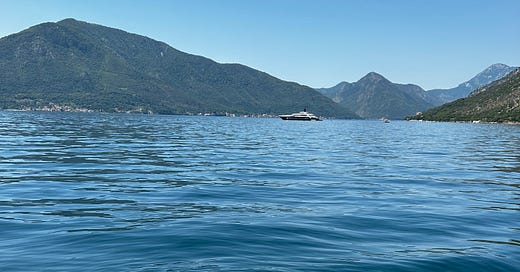



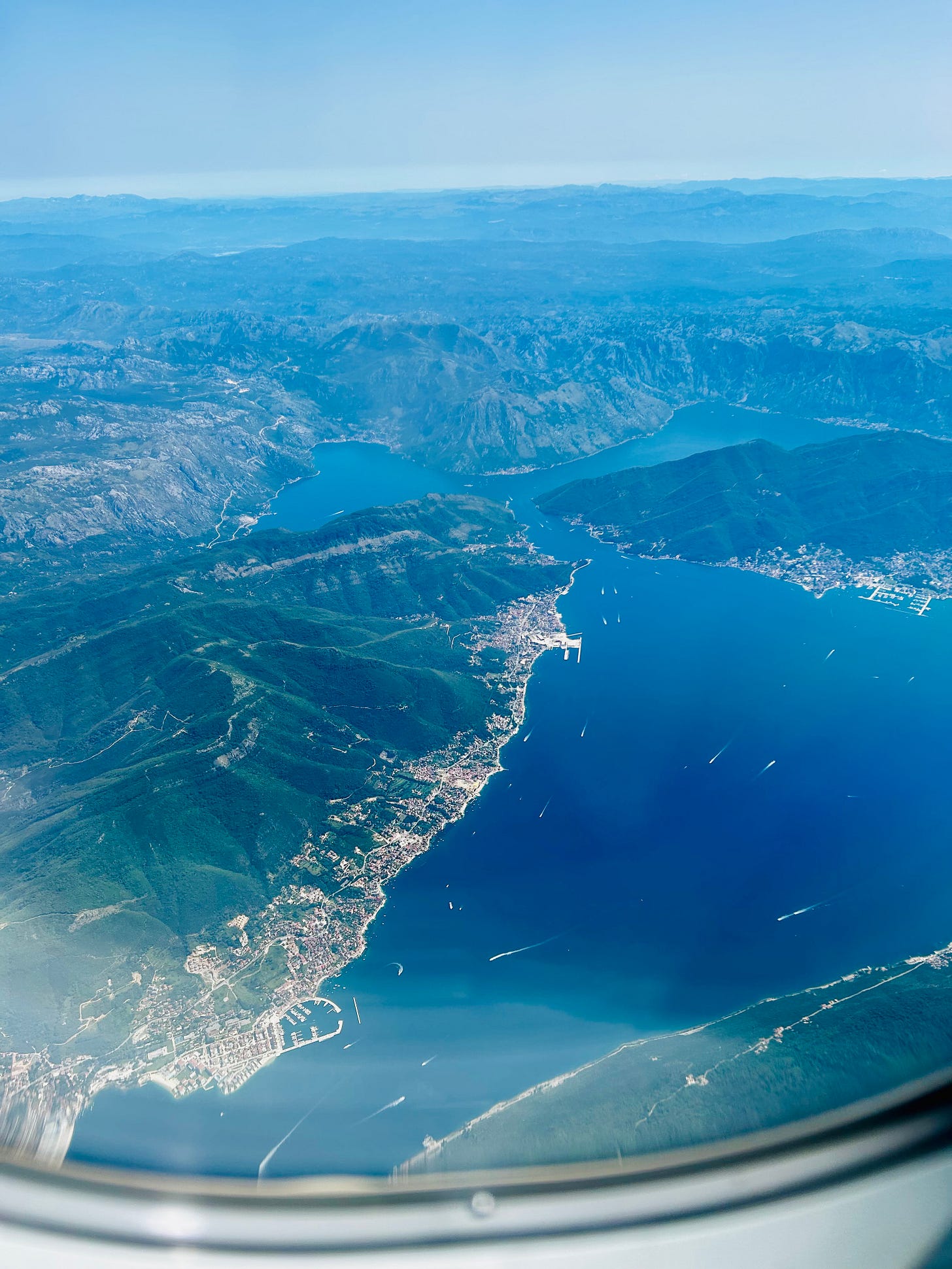
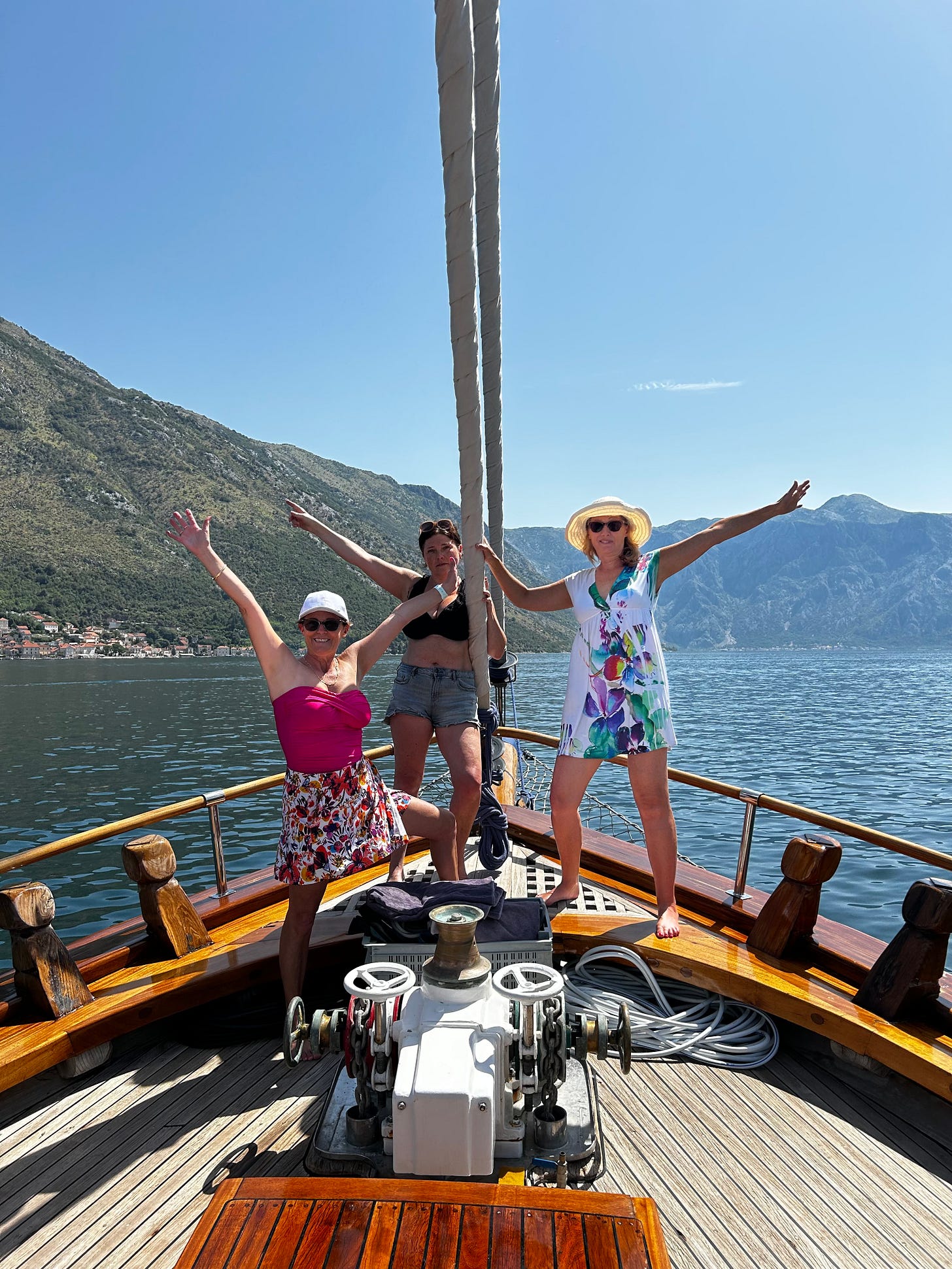
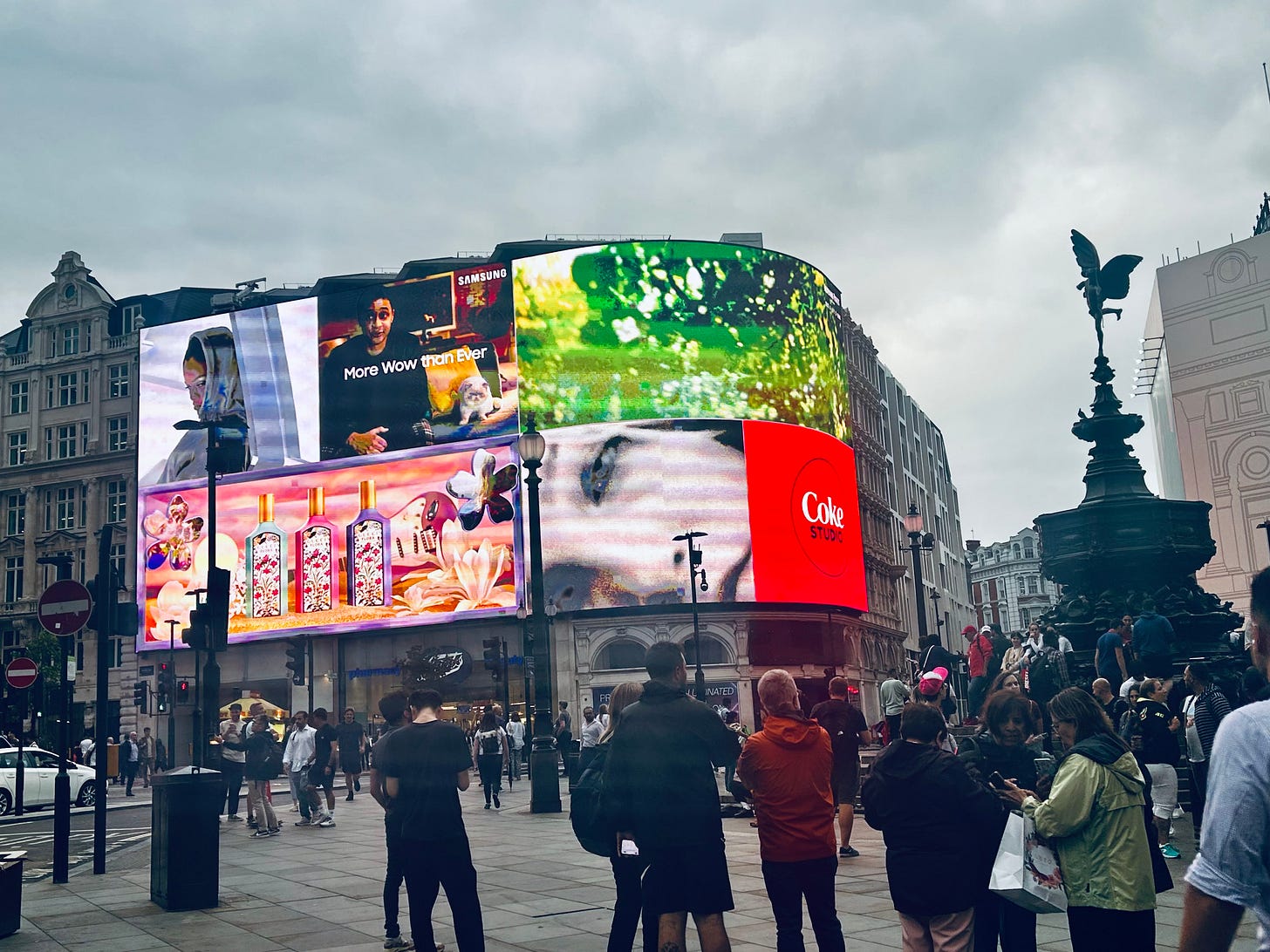
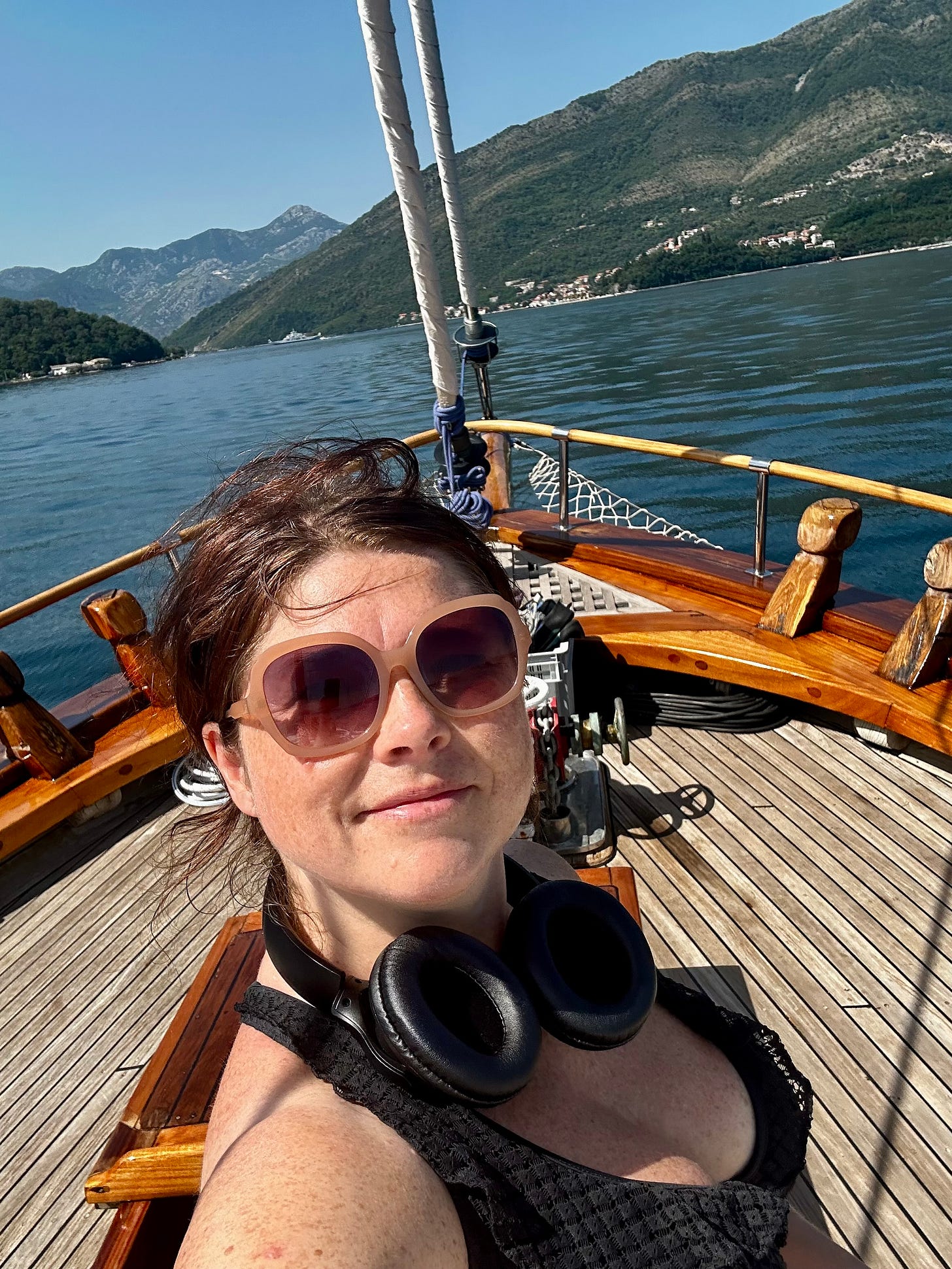
Wonderful Rhonda. Like our lunch in Sydney on the pub’s rooftop … x
Very moving... I think this way about music. Musically I spent so long stuck in the seventies, filled with memories of my formative years, but also (because of those vivid memories?) I couldn't find anything I liked as much. Imagine my relief when one day I found The Kings of Leon, and I liked them the best (best ever!) , for no reason other than the music which moved me, no memories! I was freed, and now I regularly find new music.
Thanks for your writing, once again.